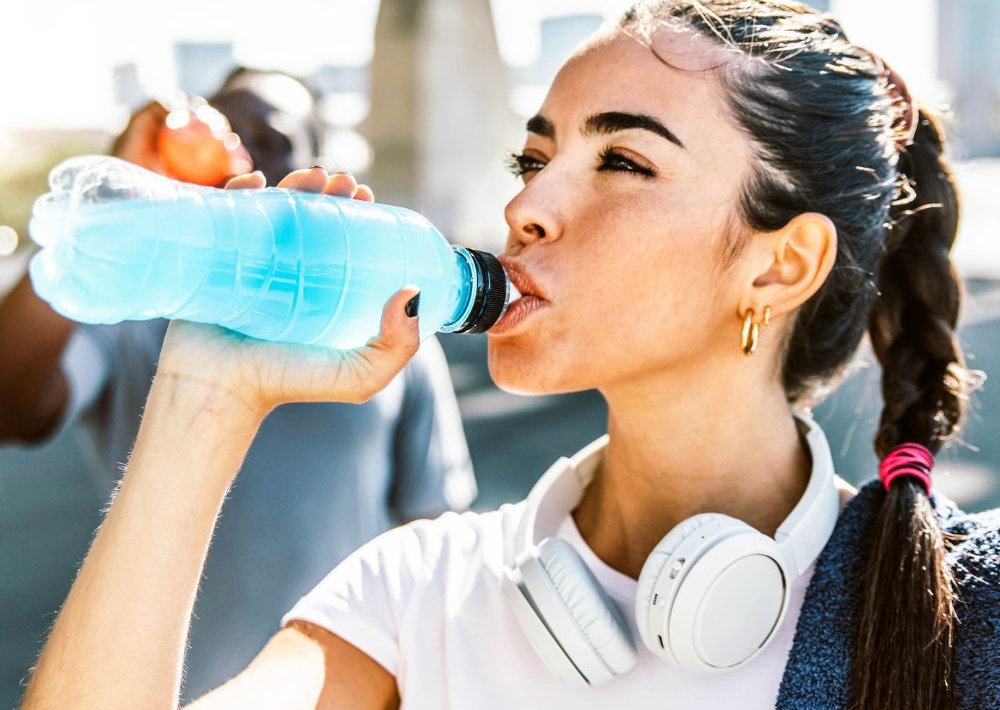Caffeine is one of the most widely consumed stimulants globally, found in coffee, tea, energy drinks, and even some soft drinks. While many rely on caffeine to boost energy and alertness, not all caffeinated drinks are created equal. This article explores which drink contains the highest caffeine content and provides insights on how to effectively incorporate caffeine into your fitness routine.
Understanding Caffeine Content
Caffeine content can vary significantly depending on the beverage type, preparation method, and serving size. Here’s a breakdown of some common caffeinated drinks and their typical caffeine content:
- Brewed Coffee: An 8-ounce (240 mL) cup typically contains approximately 95 mg of caffeine, but this can vary based on brewing time and coffee bean type.
- Espresso: A single shot (1 ounce or 30 mL) has about 63 mg of caffeine, offering a significant punch in a small volume.
- Black Tea: An 8-ounce cup contains around 40-70 mg of caffeine, depending on steeping time.
- Green Tea: Generally lower in caffeine, an 8-ounce cup has about 20-45 mg.
- Energy Drinks: Caffeine content varies widely; some popular brands contain 80 mg per 8-ounce serving, while larger cans can exceed 300 mg.
Top Drinks with the Highest Caffeine Content
When it comes to sheer caffeine content, certain drinks stand out:
- Brewed Coffee (Specialty): While a typical cup has around 95 mg of caffeine, specialty drinks can contain much more. A 16-ounce (480 mL) “grande” from Starbucks can have up to 300 mg or more.
- Energy Shots: These concentrated drinks are designed for quick energy boosts, with products like 5-Hour Energy containing up to 200 mg of caffeine in just 2 ounces (60 mL).
- Energy Drinks: Some brands market extreme energy, with drinks like Bang Energy boasting a staggering 300 mg in a 16-ounce serving.
- Death Wish Coffee: Known as one of the strongest coffees available, Death Wish Coffee contains around 700 mg of caffeine per 12-ounce (355 mL) cup, making it a favorite for those seeking an intense energy boost.
Caffeine’s Role in Exercise Performance
Caffeine can enhance athletic performance in several ways:
- Increased Endurance: Caffeine improves endurance by increasing fat oxidation, which helps spare glycogen stores during prolonged exercise.
- Enhanced Strength and Power: Some studies suggest that caffeine can improve strength and power output, making it beneficial for high-intensity workouts.
Timing Caffeine Intake for Optimal Performance
For optimal performance, timing your caffeine intake is crucial. Consuming caffeine about 30-60 minutes before a workout can maximize its effects. For endurance events, some athletes choose to consume caffeine during the activity for sustained energy.
Effects of Caffeine on Recovery
Caffeine may also aid recovery post-exercise. Research indicates it can reduce muscle soreness and improve recovery times, making it a valuable tool for active individuals.
Alternative Sources of Energy
For those looking to reduce caffeine intake, there are natural energy-boosting foods and supplements, such as:
- Bananas: Provide carbohydrates and potassium for quick energy.
- Nuts: Offer healthy fats and protein, sustaining energy levels.
- Beet Juice: May improve endurance and enhance blood flow.
Caffeine Sensitivity and Personalization
Individual differences in caffeine metabolism can affect performance. Some people may experience jitters or anxiety, while others may thrive on higher doses. It’s essential to experiment with caffeine and find the right balance for your body.
Hydration Considerations
Caffeine can have a mild diuretic effect, so staying hydrated is crucial, especially during exercise. Ensure adequate water intake before, during, and after workouts to maintain performance.
Balancing Caffeine with Other Nutrients
Combining caffeine with carbohydrates can enhance performance. Consuming a small amount of caffeine before a carb-rich meal or snack may help improve energy levels during workouts.
Long-Term Effects of Caffeine
While moderate caffeine consumption is generally safe, excessive intake can lead to anxiety, insomnia, and other health issues. Monitoring your consumption and adjusting as necessary is key.
Conclusion
When it comes to caffeine content, drinks like Death Wish Coffee and certain energy shots lead the pack. While caffeine can enhance performance, its effects vary by individual. Understanding your own caffeine sensitivity and the best timing for consumption can optimize your workouts. Whether you prefer high-caffeine options or alternative energy sources, being informed about caffeine can help you make better choices for your fitness journey. sources, being informed about caffeine can help you make better choices for your fitness journey.

